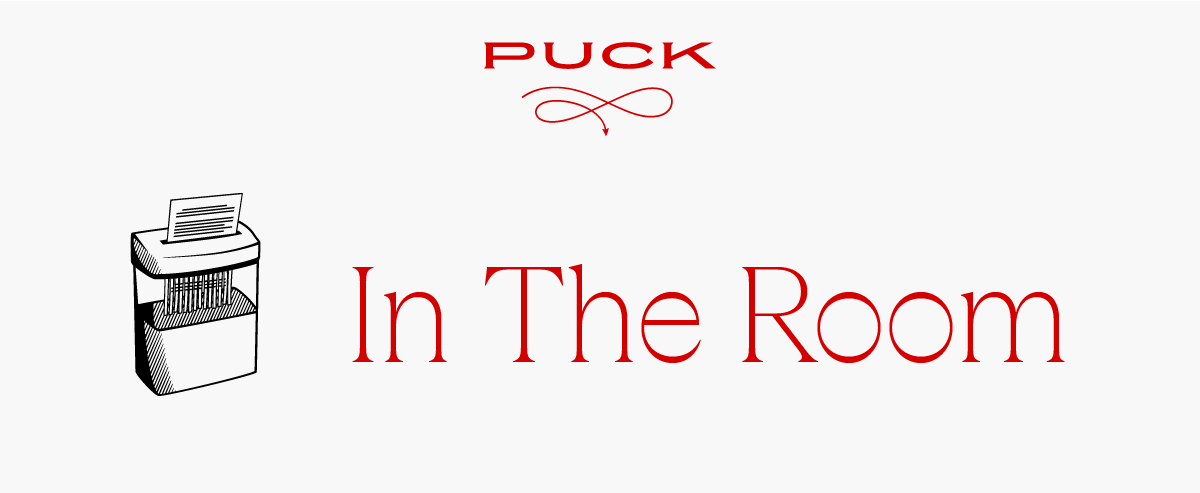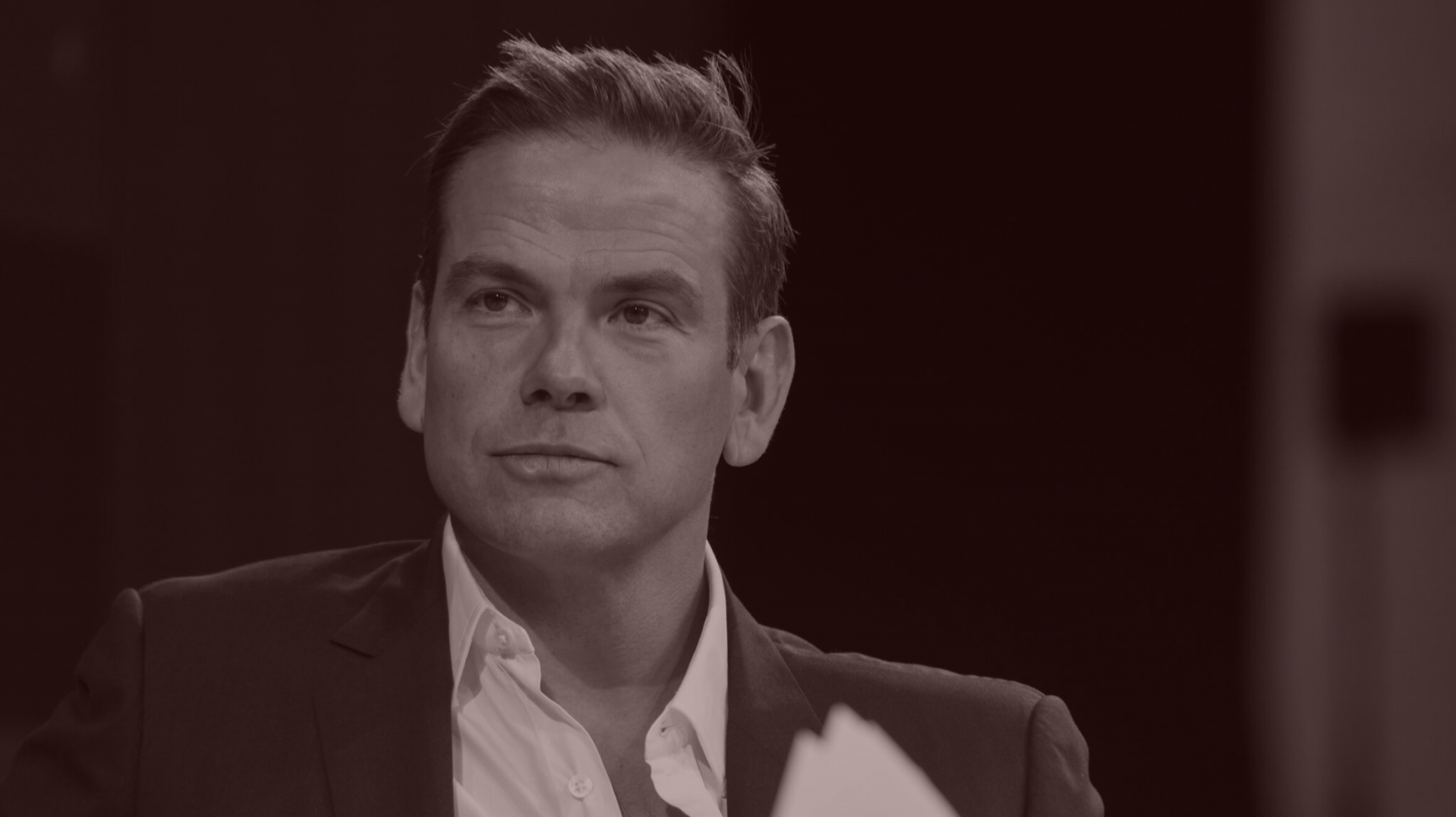 |
|
Good evening, I’m Dylan Byers.
|
|
Welcome back to In The Room, my biweekly private email on the inner workings of the American media industry. Tonight, we go inside Murdoch world, where the impending merger of Fox and News Corp. is likely to consolidate Lachlan’s power over what’s left of his father’s kingdom.
|
|
|
| Last Friday night, after the close of after-hours trading, Rupert Murdoch’s Wall Street Journal broke some landmark news about their owner’s plans for his media empire, estate planning, and legacy. The 91-year-old mogul had proposed recombining his two publicly traded companies, Fox Corp. and News Corp., in a move that would unite the Journal, Murdoch’s myriad U.K. and Australia news organizations and Simon & Schuster back under the same roof as Fox News, the Fox broadcast network, a slate of local TV stations, sports rights, and the Tubi streaming service.
The proposed merger, like Shari Redstone’s recent reunification of Viacom and CBS, would ostensibly provide the combined New Fox-News Corp. entity with greater scale to pursue acquisitions, compete for advertising revenue and capitalize on new opportunities like sports betting, while also streamlining operations via that dreaded corporate fetish of a buzzword: synergies. Also, it would presumably make the assets more efficient to one day unload, at least for the Murdoch heirs. (Though Shari, for what it’s worth, has seen that the presumed gaggle of suitors for a streamlined mega-media entity doesn’t always materialize as planned.) NewsCorp shareholders liked the news; Fox shareholders didn’t, and drove the stock down 9.4 percent on Monday.
The proposal has been couched in noncommittal terms. News Corp. C.E.O. Robert Thomson told staff “there can be no certainty that any transaction will result from its evaluation.” And the Journal also reported that “other strategic alternatives also could be considered.” Indeed, all of this is almost certainly true: deals can die for innumerable reasons, and, as Shakespeare wrote, shit happens. But Rupert has been conceiving of this merger for several months, sources familiar with his thinking have told me, and he is eager to will the strategic combination into existence. In doing so, he will set the stage for his eldest son, Lachlan, to consolidate his power over Fox News, The Wall Street Journal, etcetera, and cement his status as the successor to the Murdoch media empire, at least what remains of it.
|
|
|
| The legacy of the Murdoch empire has been a subject of great fascination for decades, and it has passed a number of consequential junctures in recent years. Five years ago, as is well known, the elder Murdoch invited Bob Iger to his Moraga Estate in Bel Air and set in motion a deal to sell Fox’s entertainment assets, or the bulk of its portfolio, to Disney for $71.3 billion. (The deal got pricier after Comcast launched its own bid.) The deal left the Murdoch heirs with billions, but deprived them of a more coveted inheritance: control of one of the most powerful media and entertainment companies in the world. This had particularly drastic implications for James Murdoch, who relinquished his role as C.E.O. of 21st Century Fox and was given no quarter at Disney. James went on to resign from the board of directors at News Corp. the following year, citing, in part, disagreements with its editorial coverage. (James and Lachlan are currently estranged and do not talk, sources familiar with the brothers’ relationship tell me). He’s now an investor and icon of the Maureen Dowd set. It’s a wonderful life, but probably not what he coveted a decade ago.
Succession is not real life, of course, and the Roys are not the Murdochs. (To be fair, they are the Murdochs and the Redstones, plus a little poetic license.) Nevertheless, the recent season finale of HBO’s satirical drama, wherein the patriarch and mogul Logan Roy sells his company without his children’s knowledge, thus depriving them of the influence they’ve long desired, bears notable resemblances to what happened with the Disney deal. But in the real life version, the elder Murdoch was not able to offload the company in its entirety. The Fox broadcast network was not on the table because F.C.C. rules prohibit one media company from owning multiple broadcast networks. (Art imitates life: a similar issue undercuts any logic for Comcast to acquire Paramount Global.) Fox News was not part of the conversation because the divisive cable news network obviously had no home at the family-friendly, mass market Magic Kingdom. And Murdoch kept Fox Sports, too, conceivably to help sustain the lucrative but declining linear business. The remaining company was a portfolio of assets Murdoch couldn’t sell, though not necessarily assets he wanted to keep.
The official Murdoch narrative is that they had a strategic logic for keeping the assets they did, driven by a commitment to news, sports and advertiser-supported streaming. Some high-level sources at Disney have wondered if Murdoch would have sold the entirety of the company if he could have—a hypothetical that is neither here nor there, possibly wishful whimsy, and certainly counterfactual since the assets weren’t in play. A Fox spokesperson says any suggestion that Murdoch wanted to sell the entire company is “100% false.”
Whatever the case, and whatever the motivations, Murdoch retained control of what has since become Fox Corp., which includes, among other things, the most influential conservative news outlets in the United States: Fox News. And as Rupert advances into his nineties, Lachlan, the current co-chairman of News Corp. and executive chairman and chief executive of Fox, is poised to take greater control of it.
|
|
|
| What might that look like? Paddy Manning, the Australian journalist and author of a forthcoming biography on Lachlan, told me that the younger Murdoch “has always aspired to be chairman, not C.E.O.,” and speculates that he “would prefer an executive chairman role… with an appointed C.E.O. from outside the family, like Viet Dinh,” the Republican lawyer and Federalist Society contributor who was the original architect of the 2001 Patriot Act. Dinh already wields significant power inside the Murdoch empire. Sources familiar with Fox’s power structure describe him as the most powerful day-to-day operator at Fox Corp. and one of Lachlan’s most trusted advisers, with influence that extends well beyond his official title. Dinh has said publicly that his job is limited to oversight of legal, regulatory and government affairs, and that any claim to the contrary is “flat-out false.”
Critics of Fox News, including some in James’s orbit, have floated concerns that Lachlan and Dinh might try to bring the Journal into closer alignment with Fox News, even establishing the Journal as a digital arm of the increasingly divisive and conspiratorial cable network, which is currently at the center of a $1.6 billion defamation lawsuit stemming from false claims made on its airwaves. Sources close to the Murdochs, including current and former associates, strongly dismiss the idea that the Journal would change under Lachlan—they protest that the son, like the father, knows that would be bad for business.
Manning is also dubious about a Fox-Journal alignment. “Lachlan refuses to open up about his own politics,” he said. “He employs a lot of journalists and is wary of groupthink and believes that if he starts signaling his own views, they will be parroted around the empire, [which is] counterproductive.” Lachlan has consistently described his politics as socially liberal and economically conservative, but Manning notes that “his political donations have overwhelmingly favored conservatives and he is regarded as leaning to the right of his father.” Adds Manning: “In a post-Roe America, it is hard to reconcile Lachlan’s supposed small-l social liberalism with his million-dollar donation to the Senate Leadership Fund of Mitch McConnell, architect of the conservative supermajority on SCOTUS.”
In the end, the late-Murdoch empire may reveal the truest colors of all its co-conspirators: an aging patriarch who cares mostly about his winnings, a favored son with a surfer personality whose ambition doesn’t match his father, and a scorned other son who will always be a foil. And in the background presides a wildly profitable yet undeniably short-term focused media machine that is, at least partly, responsible for some of the most divisive elements of our culture.
|
|
|
|
| FOUR STORIES WE’RE TALKING ABOUT |
 |
| Putin’s Terror Tools |
| A meditation on the ironic twist in Russia and Iran’s new partnership. |
| JULIA IOFFE |
|
 |
| The E.S.G. Bonanza |
| This shareholder proxy season, aggrieved investors are more vociferous than usual. |
| ERIQ GARDNER |
|
 |
| The Netflix Rebirth |
| A between-the-lines reading of the streamer’s encouraging Q3 report. |
| JULIA ALEXANDER |
|
 |
| Biden’s Blessing |
| Will Team Biden throw its juice behind a Silicon Valley-inflected outside political group? |
| TEDDY SCHLEIFER & TARA PALMERI |
|
|
|

|
|
|
| You received this message because you signed up to receive emails from Puck
Was this email forwarded to you?
Sign up for Puck here
Interested in exploring our newsletter offerings?
Manage your preferences
Puck is published by Heat Media LLC
227 W 17th St
New York, NY 10011
For support, just reply to this e-mail
For brand partnerships, email ads@puck.news
|
|
|






